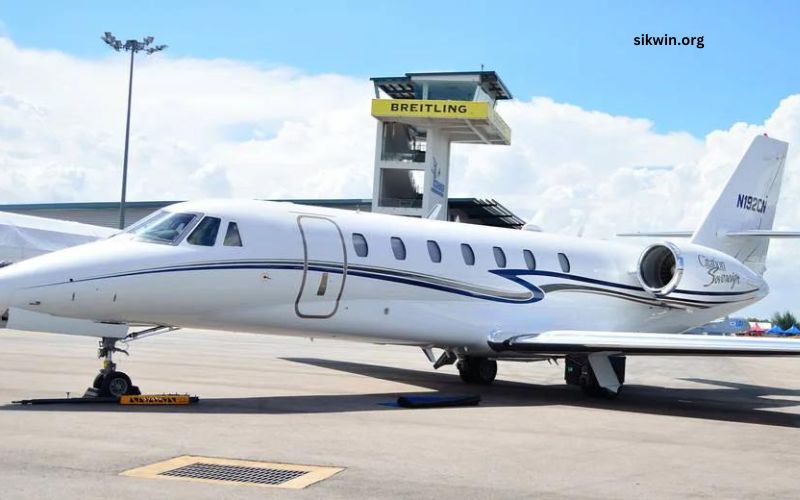Private jets have long been synonymous with luxury and exclusivity, reserved for the elite few who can afford their high price tags. In India, a country of burgeoning wealth and a growing number of high-net-worth individuals (HNIs), private jet ownership is not just a symbol of affluence but also a practical choice for those seeking convenience and privacy in air travel. This article delves into the world of private jets in India, exploring the costs involved, popular models, operational expenses, and the overall landscape of private aviation in the country.
Understanding the Costs
Owning a private jet in India entails significant upfront costs and ongoing expenses. The price of a private jet can vary widely depending on several factors:
- Aircraft Model: Private jets come in various sizes and capabilities, ranging from small, light jets to large, ultra-long-range jets. The cost of a jet is largely determined by its size, range, amenities, and brand.
- New vs. Pre-owned: Like cars, private jets depreciate in value over time. Buying a new jet from the manufacturer is considerably more expensive than purchasing a pre-owned aircraft. However, newer jets often come with advanced technology and lower maintenance costs initially.
- Additional Costs: Beyond the purchase price, buyers must consider operational costs such as maintenance, hangar fees, crew salaries, insurance, fuel, and airport handling charges. These expenses can add up significantly over the lifespan of the aircraft.
Popular Private Jet Models in India
Several private jet models are popular among Indian buyers, each catering to different needs and preferences:
- Bombardier Challenger Series: Known for their spacious cabins and long-range capabilities, Bombardier jets are favored by those who frequently travel long distances.
- Gulfstream G Series: Gulfstream jets are renowned for their luxury interiors and high-speed performance, making them a preferred choice for ultra-high-net-worth individuals (UHNIs) in India.
- Cessna Citation Series: Cessna jets are popular for their versatility and cost-effectiveness, appealing to both corporate executives and private owners looking for reliable performance.
- Embraer Phenom Series: Embraer jets are valued for their efficiency and comfort, often chosen by business travelers and charter operators in India.
Purchasing Process and Considerations
Buying a private jet in India involves several steps and considerations:
- Consultation and Planning: Potential buyers typically consult with aviation experts, brokers, and legal advisors to understand regulatory requirements, financing options, and operational considerations.
- Inspection and Test Flights: Before finalizing a purchase, buyers may conduct inspections and test flights to evaluate the aircraft’s condition and performance.
- Registration and Documentation: Registering a private jet in India requires compliance with civil aviation regulations, including obtaining permits, clearances, and licenses.
- Ownership Structures: Some buyers opt for fractional ownership or leasing arrangements to mitigate costs and operational complexities associated with full ownership.
Operational Expenses and Maintenance
Owning a private jet involves ongoing operational expenses and maintenance:
- Maintenance Costs: Routine maintenance and periodic inspections are essential to ensure the safety and airworthiness of the aircraft. Maintenance costs vary based on the type and age of the jet.
- Fuel Costs: Jet fuel prices fluctuate and significantly impact operating expenses. Larger jets consume more fuel per hour than smaller aircraft.
- Crew Salaries: Hiring and retaining qualified pilots and crew members is crucial for safe and efficient operations. Pilot salaries and training costs contribute to overall ownership expenses.
- Insurance and Hangar Fees: Comprehensive insurance coverage is necessary to protect against liabilities and risks associated with private jet ownership. Hangar fees for storage and maintenance vary by location and facility.
Chartering and Fractional Ownership
For those who prefer not to own a private jet outright, chartering and fractional ownership options provide flexibility and cost savings:
- Charter Services: Private jet charter companies offer on-demand flights tailored to individual travel schedules and preferences. Chartering is ideal for occasional travelers or those who prefer not to commit to full ownership.
- Fractional Ownership: Fractional ownership allows multiple individuals or entities to share ownership of a private jet, dividing the costs and operational responsibilities among the co-owners.
Regulatory and Legal Considerations
Private jet operations in India are governed by regulatory bodies such as the Directorate General of Civil Aviation (DGCA):
- Clearances and Permits: Obtaining clearances and permits for domestic and international flights is mandatory. Compliance with safety regulations and airspace restrictions is essential for lawful operations.
- Taxation and Import Duties: Importing a private jet into India may attract customs duties and taxes, which vary based on the aircraft’s value and origin.
The Future of Private Aviation in India
As India’s economy continues to grow, so does the demand for private aviation services:
- Infrastructure Development: Investments in airport infrastructure and FBO (Fixed Base Operator) facilities enhance the accessibility and efficiency of private jet operations across India.
- Market Expansion: The expanding base of HNIs and corporate travelers fuels demand for private jets, leading to growth in charter services, fractional ownership models, and aviation-related investments.
- Environmental Considerations: Increasing awareness of carbon emissions and sustainability prompts advancements in eco-friendly aviation technologies and practices.
Conclusion
Private jet ownership in India remains a hallmark of luxury and convenience, catering to the discerning tastes of affluent individuals and corporate executives. While the costs associated with private jets are substantial, the benefits in terms of privacy, flexibility, and time savings are often deemed invaluable by those who can afford them. As the private aviation sector evolves, innovations in technology, regulations, and market dynamics will continue to shape the landscape of private jet ownership in India.





Hey very nice website!! Man .. Beautiful .. Wonderful .. I’ll bookmark your web site and take the feeds also…I’m happy to search out numerous useful information right here in the put up, we’d like develop more techniques in this regard, thank you for sharing. . . . . .